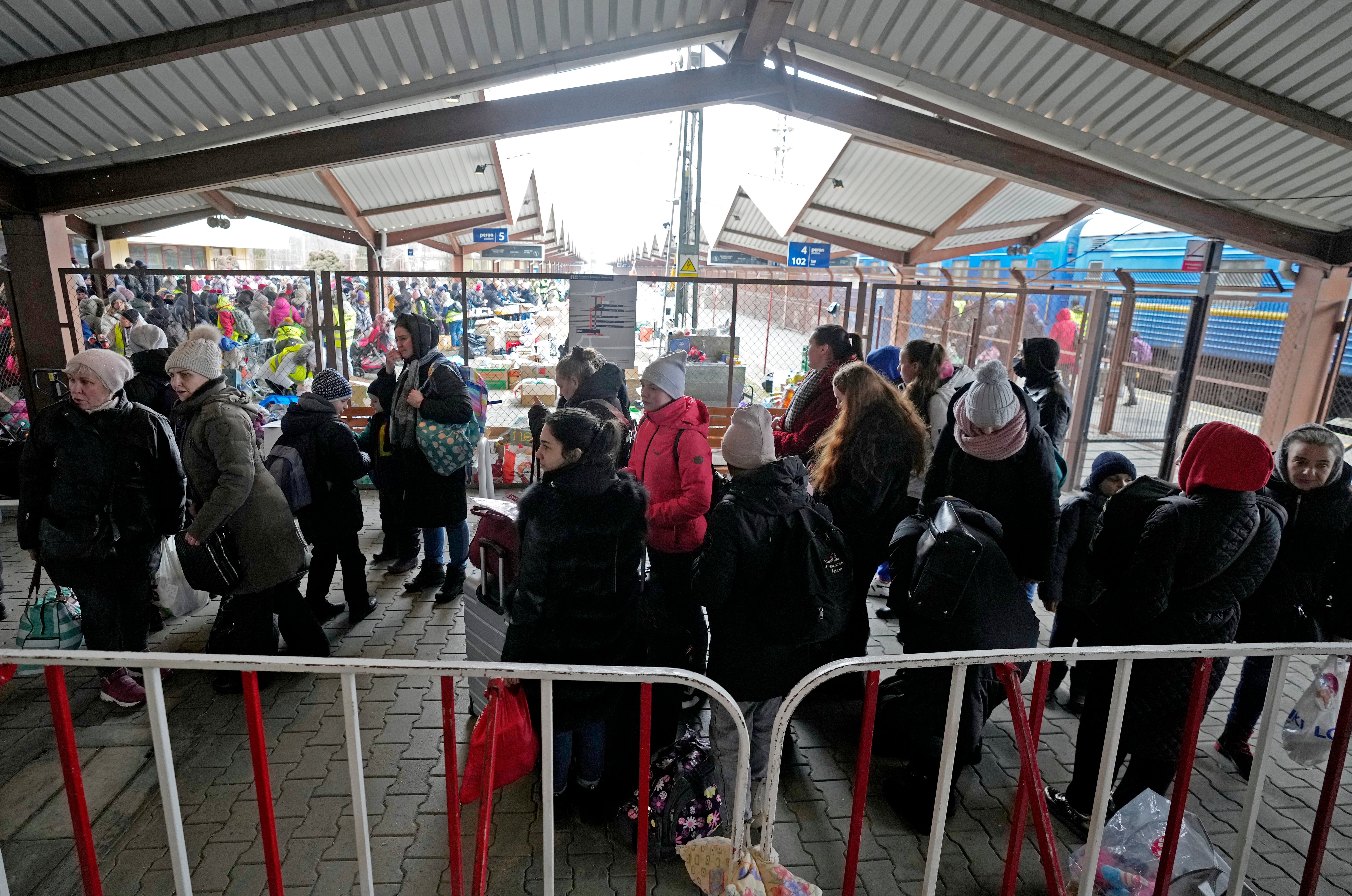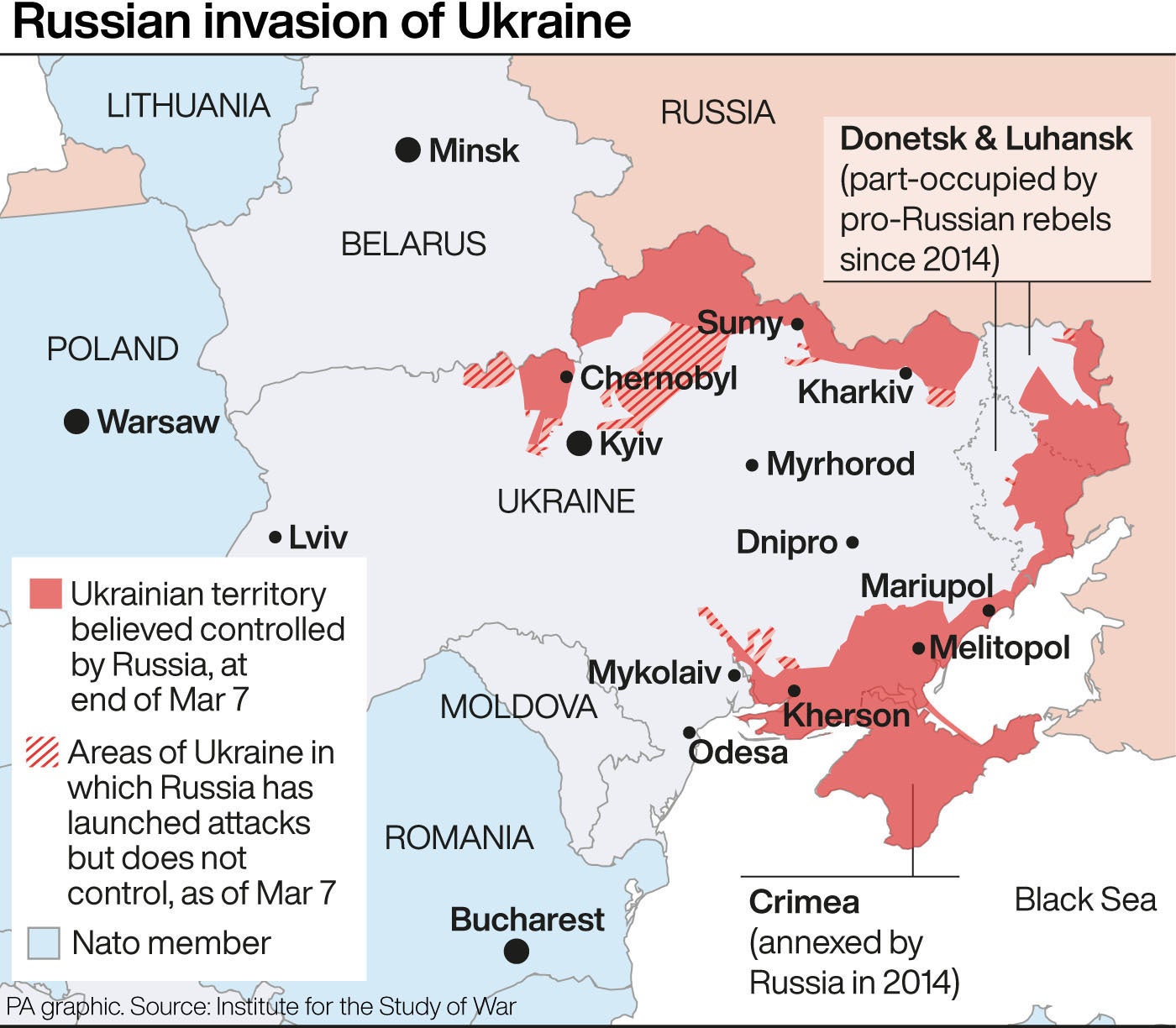
In the days before Vladimir Putin launched his invasion, rumours started to swirl in Odesa that its mayor had ordered one million red roses from Ecuador to adorn Russian troops upon their eventual arrival into the city.
The ties that bind Odesa and Russia stretch back many centuries, running along historical, cultural and family lines. In the late 1790s, the empress Catherine the Great helped build the modern foundations of the city, which, to this day, remains distinctively Russian in its character, language and outlook.
But, despite these deep-seated connections, there is no intention to welcome Putin’s soldiers with open arms - the flowers were ordered to mark International Women’s Day, a national holiday for Ukraine - and nor is there any desire within Odesa to step back from the Ukrainian resistance.
“We’re ready for the attack,” says Irina Grigorieva, one of the many citizens of the city who has yet to flee. “Many of our soldiers are gathered to defend us. We don’t want any Russian occupation. I want to be free in my thoughts. I want to be free in my feelings. In my words.”
Although the worst of the fighting has yet to reach Odesa, located in the south-west of Ukraine on the Black Sea, there is a sense that it is only a matter of time. “We are all pretty sure that they will try to take the city,” says Solomiia Bobrovska, an MP and former acting governor of Odesa.
There have already been sightings of Russian saboteurs, who have attempted to plant military supplies in the city and carry out reconnaissance, while president Volodymyr Zelensky claimed over the weekend that the Kremlin was preparing to bombard Odesa.
To do so would no doubt bring huge destruction to the city’s ports and harbours, which, since the days of Catherine of Great, have breathed life into the country’s economy. Today, the three major ports of the Odesa region account for 70 per cent of all Ukrainian exports, much of which are grain and vegetables.
But with the city’s ports no longer operating, it is not just the Ukrainian economy which stands to suffer. Hanna Shelest, a Black Sea security expert who has advised the national government, warns that countries in Asia and the Middle East which rely on Odesa for their food are at risk of missing out on supplies and being forced to pay extortionate prices for alternative sources.
This is “one key reason” why Putin will seek to capture the city, Shelest believes - both to further cripple Ukraine during the current invasion and then later exploit its riches for Russian gain.
As the home of the Ukrainian navy since the 2014 annexation of Crimea - the location of the old headquarters - there is also the military and strategic appeal of Odesa, she adds. In capturing the city’s ports, Russia would be able to further extend its presence in the Black Sea.
“The navy is very determined and highly motivated after Crimea to fight and they know what to expect,” Shelest says. “But at the same time, Russians will heavily target Odesa to punish the Ukrainian navy.”
In anticipation of the bloodshed, some citizens have already chosen to flee. Anastasia, a teacher at a Russian-speaking school in Odesa, moved to Bucharest not long after the bombs started falling in the east of Ukraine.
She has a duty to her students, who are continuing to receive their education in a building lent by the Romanian government, but regularly keeps in touch with her husband, who has remained behind in Odesa.
“Only the men who had military experience are receiving guns, but there are also those who are helping to prepare the city, like my husband,” says Anastasia. “They are bringing sand from the beaches, making barricades in the streets and putting tape on windows to protect against explosions.
“If you walk in the streets of Odesa, it’s not empty. Life is going on, but it’s another type of life.”

Despite being born in Russia and spending most of her time in Odesa speaking the language, along with the majority of the population, she has now switched to Ukrainian - a small but significant act of defiance, one that has also been adopted by the city’s mayor, Gennadiy Trukhanov, renowned for his pro-Moscow views.
“We have started to talk Ukrainian to each other because we don’t want anything to do with our neighbour,” says Anastasia. “So before we were neutral. Russian was our language. This was our culture as well; we read Russian books and everything. But now of course, they’re killing our country. Russia is not welcomed in Odesa in any way.”
It’s the sort of statement that could only be made in war, one that pits friends and families against each other. Indeed, in a survey conducted last September, 68 per cent of Odesans said they agreed with the notion that Russians and Ukrainians are “one people”.
Questions are now being asked of how Putin’s forces will attempt to launch their assault on the city. Some have speculated that the Kremlin is reluctant to subject Odesa to the same scale of bombing seen in other cities due to its Russian connections.
“Odesa is very emotional for many Russians,” says Shelest, a resident of the city. “To start shelling us as hard as Kharkiv would be disastrous for PR. Any destroying of Odesa downtown, which is well known for many people in Russia, would be like targeting their own territory.”
Beyond matters of sentiment, there is also the fact that Putin’s soldiers have not travelled that far south-west in Ukraine, with his forces bogged down in heavy fighting on the outskirts of many eastern cities.

Russian’s navy dwarfs Ukraine’s, and the Kremlin’s war ships have already been asserting themselves in the Black Sea by attacking military outposts and sinking commercial ships, but any sea-based assault on Odesa would need “serious back-up from the land” to have any hope of landing troops on the city’s now fortified beaches, says Shelest. “It’d be extremely illogical to attempt this.”
There is also the prospect of Russia turning to Transnistria to help launch what Bobrovska sees as a “potential second front”. The unrecognised breakaway state, located on the border with Moldova and Ukraine, is under the full control of Moscow and is stationing around 1,400 Russian troops, which could be used in any attack on Odesa.
It’s not clear if such forces would ultimately be willing to engage in the war, according to Shelest, while bridges between Transnistria and the Odesa region have already been destroyed. But the threat and fear nonetheless remain.
In the meantime, the city has no choice but to wait and watch as the rest of the country burns and bleeds. If and when Putin’s forces turn their sights westward, Odesa will not go down without a fight - irrespective of its Russian roots. “As a port city, they have their own mentality,” says Bobrovska. “No one can rule them. No one can tell them what to do.”
But beneath this spirit of resilience there remains a lament for the return of a life that Odesa, and Ukraine, once knew. “I want to just feel the same as I felt before this all started,” says Grigorieva. “I had dreams, I had plans, I had goals and I had a future.”







